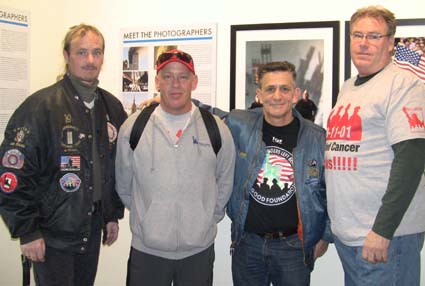Cancer Coverage for WTC Survivors a Hot Issue

MagnusPhotoRespondersJan24_2.jpg
By Cynthia Magnus
Brooklyn Daily Eagle
NEW YORK — With the topic of cancer being added to the list of federally funded conditions covered under the James Zadroga 9/11 Health and Compensation law, hundreds perhaps thousands of stakeholders throughout the city and country tried to connect to a teleconference on Tuesday Jan. 24 organized by the National Institute for Occupational Safety (NIOSH). It was aborted at the last minute due to a phone glitch.